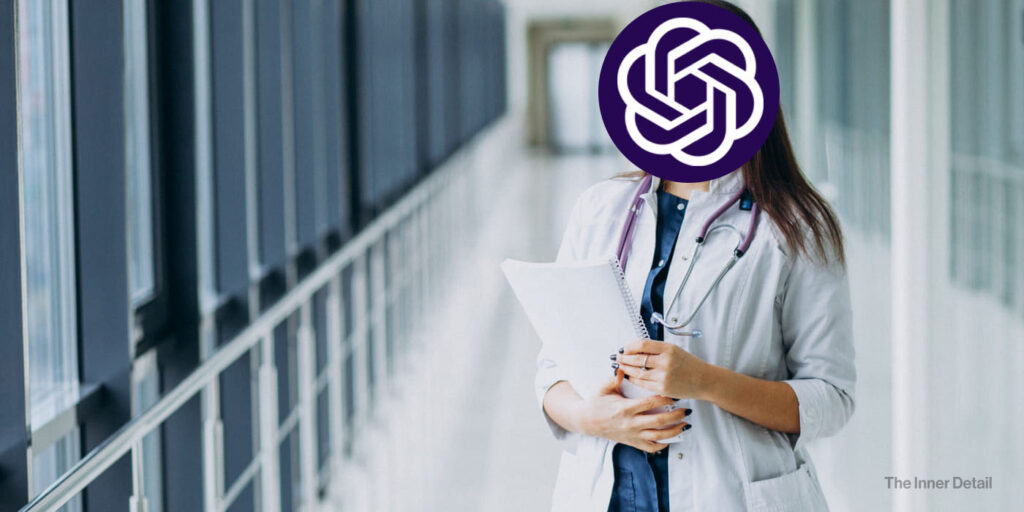Artificial intelligence (AI) has moved beyond theoretical discussions and is increasingly demonstrating its potential to impact our lives in profound ways, even saving them. The increasing influence of artificial intelligence (AI), especially large language models like ChatGPT, is no longer confined to theoretical discussions but is demonstrably impacting our lives in significant ways, including seemingly saving them.
We are witnessing a transition where AI’s potential to revolutionize various aspects of human existence is being realized through tangible applications. While the discourse surrounding AI safety and its long-term implications continues to evolve, compelling real-world scenarios are beginning to emerge that highlight AI’s immediate capacity to intervene and avert potential tragedies.
These instances offer a fascinating glimpse into how advanced AI can act as an unexpected lifeline in critical situations, prompting us to consider the profound and potentially life-altering role this technology is beginning to play in our world. Here are five compelling stories where ChatGPT appears to have directly contributed to saving someone’s life.
ChatGPT Diagnoses Rhabdomyolysis
An anonymous Reddit user shared a remarkable experience where ChatGPT potentially saved their life by diagnosing a severe medical condition. After a light workout, the user experienced extreme soreness and, confused by the sudden deterioration, consulted ChatGPT.
The AI chatbot analyzed the described symptoms and recommended immediate hospitalization, suggesting moderate to severe Rhabdomyolysis. This is a serious condition involving the rapid breakdown of damaged muscle tissue, which can lead to kidney damage and even death if untreated.
Acting on ChatGPT’s advice, the user went to the hospital, where tests confirmed severe rhabdomyolysis requiring a week of constant IV treatment and monitoring. The user even noted that ChatGPT’s analysis of their lab results aligned with the medical team’s assessment.
Bethany Crystal’s Alert
Writer Bethany Crystal recounted her experience of how ChatGPT identified a critical health issue that doctors initially missed. Feeling unwell, Crystal underwent tests that didn’t reveal anything too concerning, and she was sent home with diet recommendations. As her condition worsened, she consulted ChatGPT for diet adjustments.
When she noticed “tiny red pinprick spots” on her leg, she again turned to AI, sharing images. While the AI initially suggested diet and vitamin changes, Crystal still felt something was wrong and mentioned having recent bloodwork done. Upon reviewing her self-provided lab results, ChatGPT urgently replied that her “platelet count is alarmingly low” and advised her to go to the ER immediately. Despite the lack of communication from her doctor’s office about the results, ChatGPT’s insistence and step-by-step instructions prompted Crystal to seek emergency care.
Doctors at the hospital confirmed her critically low platelet count, a potentially life-threatening condition. They were surprised but acknowledged that AI could be valuable for early detection.
ChatGPT Offers Mental Health Support
In a different realm of life-saving intervention, a Reddit user living abroad with limited support shared how ChatGPT, whom they named Hanna, helped them navigate a mental health crisis. Experiencing intense depressive thoughts and lacking access to a therapist due to language barriers and reluctance to burden friends and family, the user reached out to ChatGPT in desperation.
In the midst of “mania and ideation,” Hanna (ChatGPT) calmed the user down and helped them focus on tasks for distraction. The user expressed surprise at finding more empathetic and helpful advice from the AI than from many people they knew. This instance highlights the potential of AI as a readily available tool for mental health support, especially when traditional avenues are inaccessible.
ChatGPT Suspected Hashimoto disease in her
Lauren Bannon, frustrated by doctors’ misdiagnosis of her rapid weight loss and severe stomach pains as rheumatoid arthritis and acid reflux, turned to ChatGPT and potentially uncovered hidden thyroid cancer. The AI suggested she might have Hashimoto’s disease and recommended specific thyroid tests, including checking her thyroid peroxidase antibody (TPO) levels.
Despite her doctor’s initial skepticism due to the lack of family history, Bannon insisted on the tests. The subsequent thyroid scans revealed two small cancerous lumps in her neck. Bannon believes that without ChatGPT’s suggestion, she would have continued taking medication for a misdiagnosis, allowing the cancer to spread. Her early detection, facilitated by AI, allowed for timely treatment and potentially saved her life.
These five instances, ranging from AI-driven drug discovery to chatbot-assisted self-diagnosis and mental health support, underscore the growing potential of AI to act as a crucial lifeline in various critical situations. While caution and professional medical advice remain paramount, these stories offer a glimpse into a future where AI can be an invaluable partner in safeguarding human lives.
AI in Drug Repurposing: Joseph Coats’ Story
While not directly ChatGPT, the case of Joseph Coats powerfully illustrates how AI can be a lifeline. Suffering from the rare POEMS syndrome and facing severe complications that prevented a life-saving stem cell transplant, Coats was given little hope by his doctors.
However, his girlfriend reached out to Dr. David Fajgenbaum, who utilized AI for drug repurposing. AI combed through existing literature to find potential beneficial side effects of approved drugs for rare illnesses.
The AI suggested an unconventional therapy combining chemotherapy, immunotherapy, and steroids. This AI-driven therapy proved successful, strengthening Coats enough to finally receive the necessary stem cell transplant four months later. This exemplifies how AI can find novel uses for existing medicines, offering hope to those with rare and difficult-to-treat conditions.
(For more such interesting informational, technology and innovation stuffs, keep reading The Inner Detail).
Kindly add ‘The Inner Detail’ to your Google News Feed by following us!

